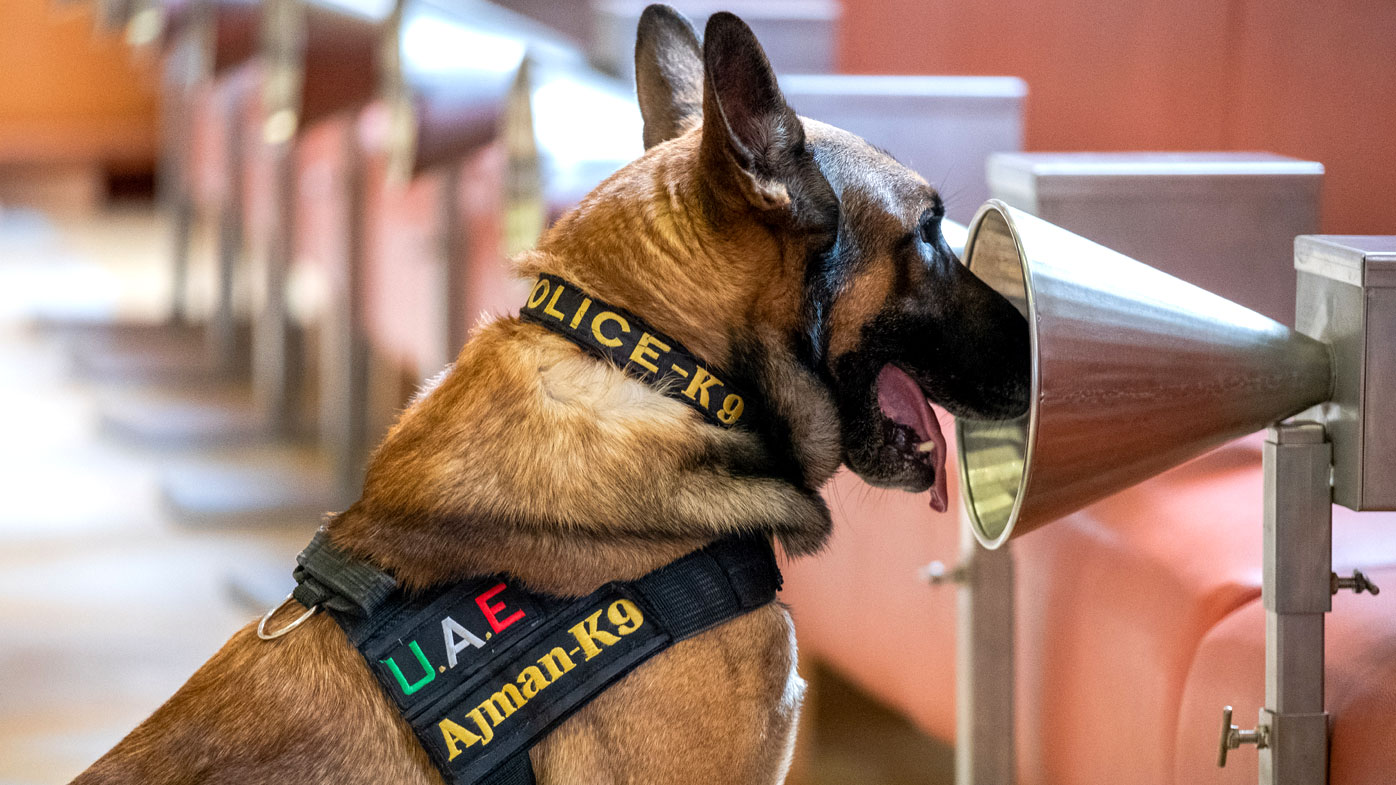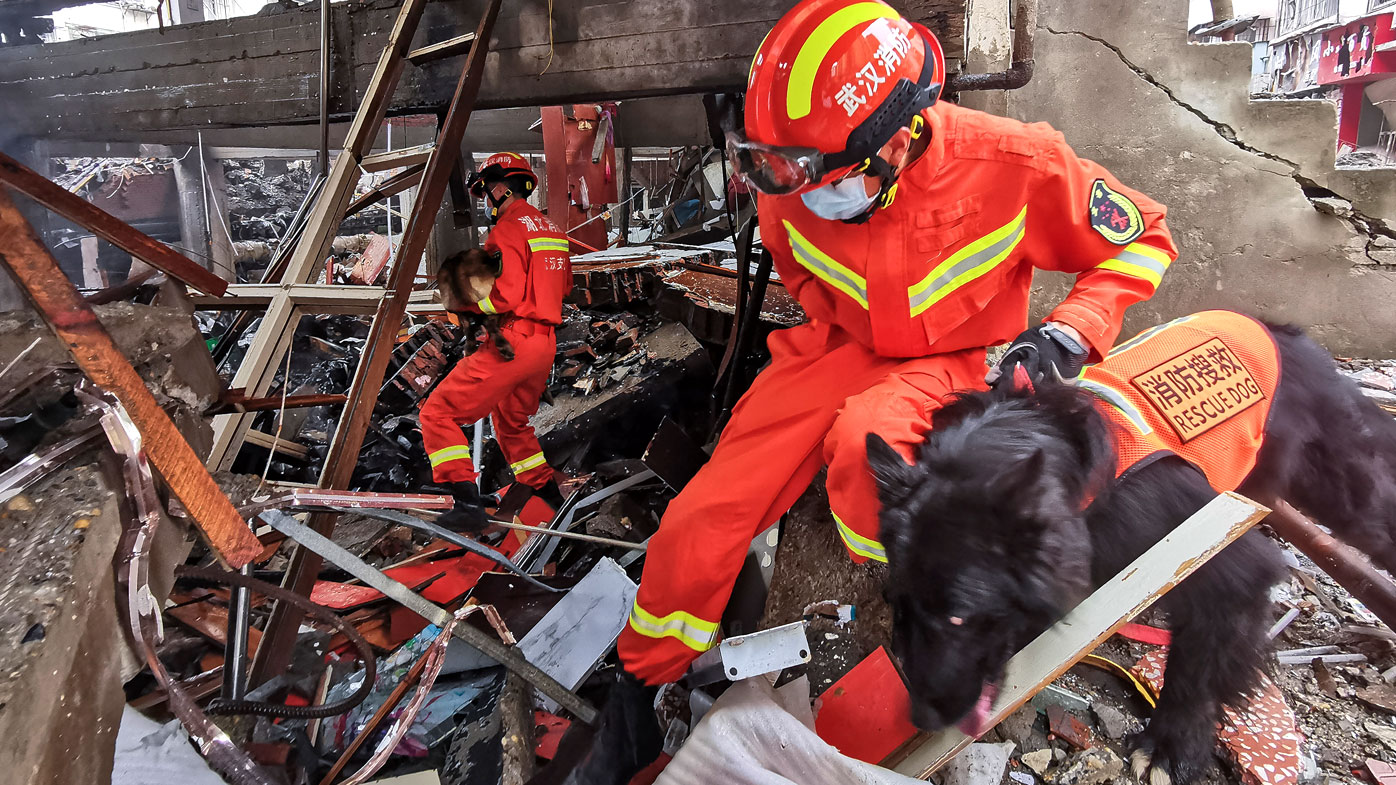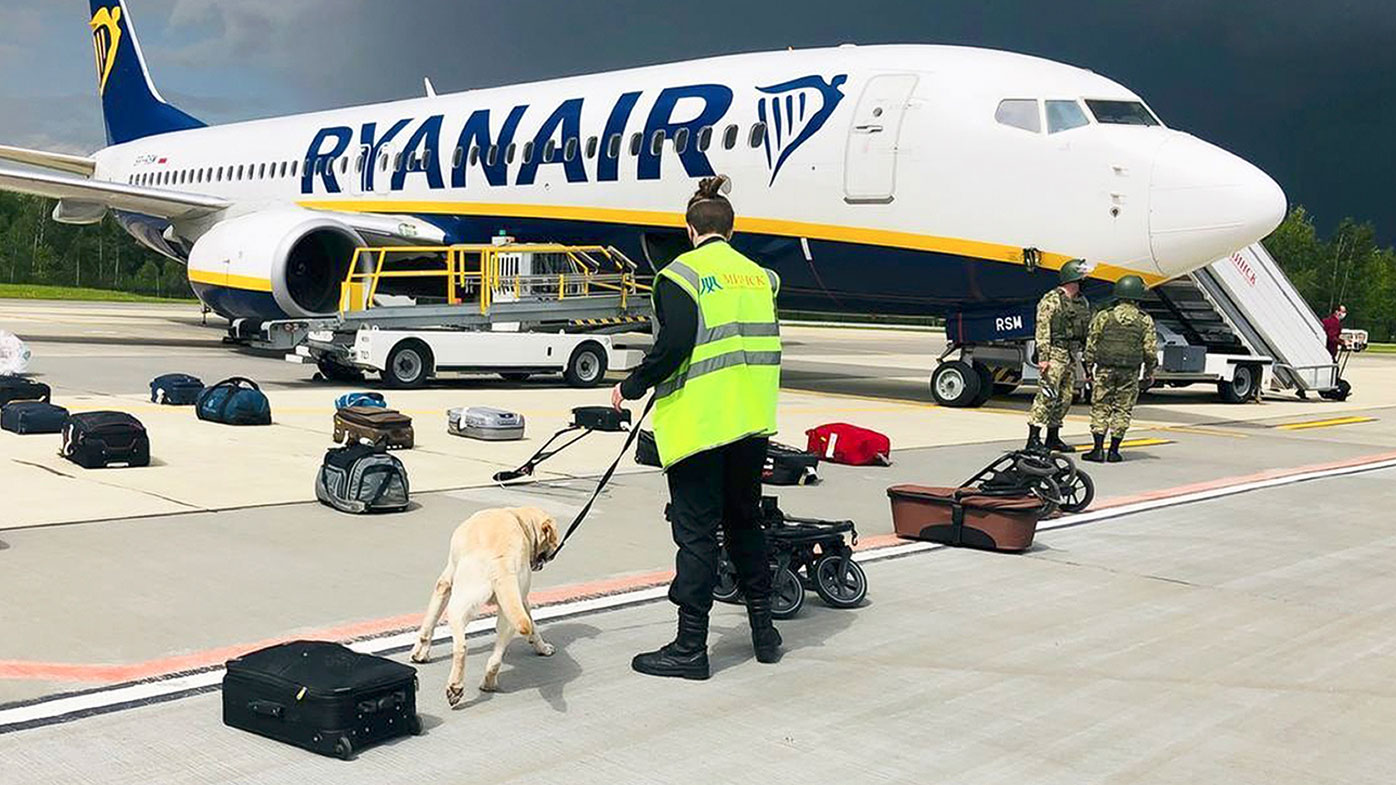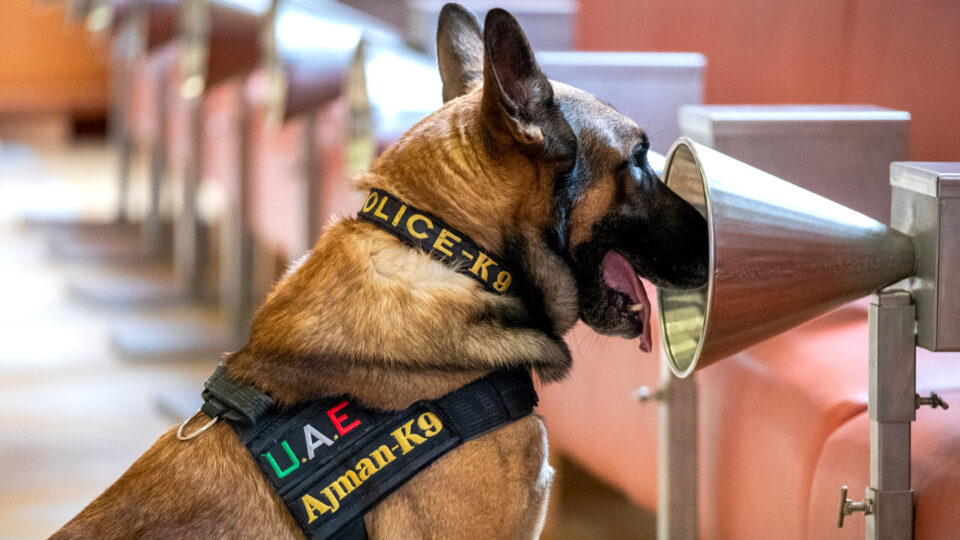Highly-trained dogs can sniff out COVID-19 infections better than the coronavirus testing kits most Australians now rely on, a new study has claimed.
A group of 335 people took part in the research, with about one-third of participants testing positive for the deadly virus with a nasal PCR swab.
By sniffing sweat samples, and using up to 300 million scent receptors in their noses, the dogs picked up 97 per cent of those PCR positive cases, and reached "100 per cent sensitivity" for asymptomatic cases, the study said.

READ MORE: Vet warning after 'unusual' paralysis tick found in Sydney
The dogs outperformed rapid antigen tests (RATs) when it came to detecting the presence of coronavirus, the team of French and Emirati researchers said.
PCR tests, which were used heavily in Australia's first waves of the pandemic, are more sensitive and accurate than RATs.
After state governments moved away from expensive PCR testing, which involved clinical professionals sending samples to laboratories, Australians were encouraged to carry out RATs at home and self-report positive results.
The team of French and Emirati researchers said a well-trained sniffer team could be a "rapid and non-invasive alternative" to RATs, particularly at airports and sporting events.
Dogs have a built a formidable reputation for helping law enforcement, finding dead bodies, illicit drugs, firearms and explosives, but there is also potential in healthcare.
READ MORE: How Australia's mining expertise could help humans reach Mars

READ MORE: Sydney couple duped out of $5000 over a seven-hour call
Studies over the past decade have reported handlers and their four-legged companions identifying urine of bladder cancer patients and lung cancer in exhaled breath samples.
Queenslander Martin Dominick, who has 35 years' experience training young pups for government and private corporations, said the ability of canines to sniff out tiny whiffs of a substance is remarkable, and a natural gift that technology cannot match.
"It starts with the nose and the ability to differentiate odours in very small quantities," he said.
"And they are also a sort of moving machine, if you want to put it that way, they can move, they can go into small spaces, they're multi-directional."
One of the biggest strengths of a sniffer dog is total impartiality and non-human bias, Dominick said.

"There's no hidden agenda with dogs," he said.
"All they want to do is find the odour so they can get the reward."
Over time, dogs can be trained to sniff out any particular scent, Dominick said, with rewards used to reinforce results.

